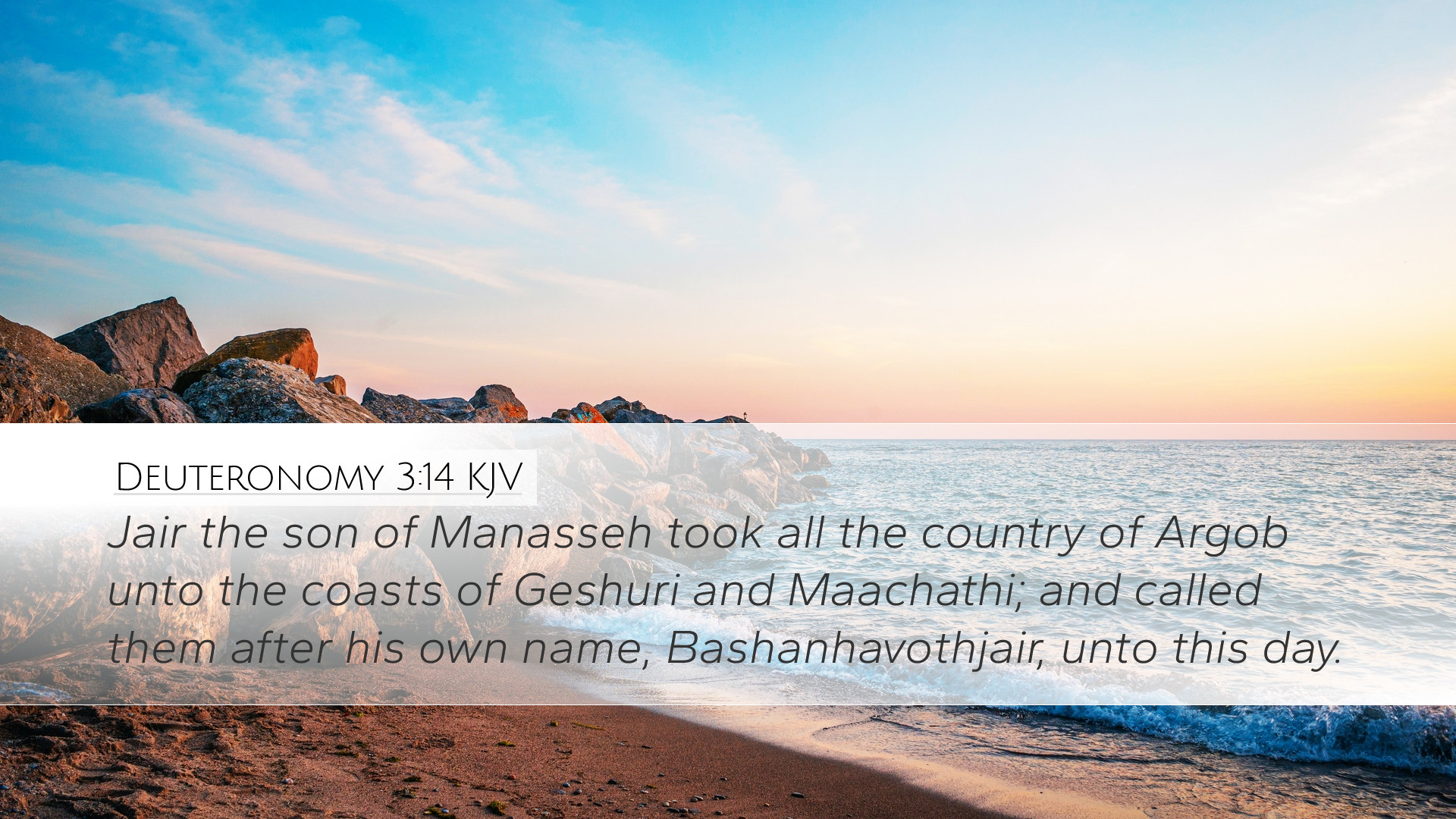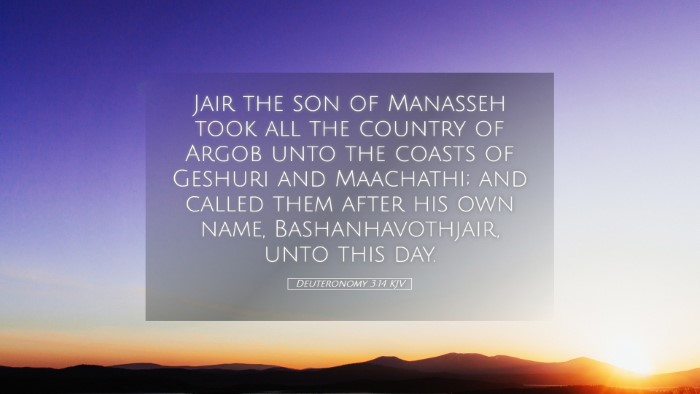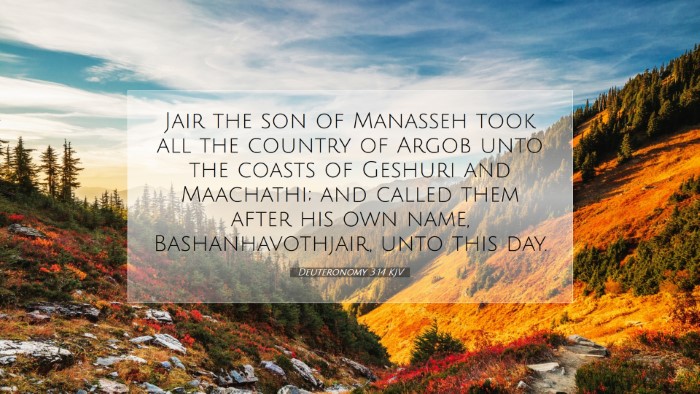Commentary on Deuteronomy 3:14
Bible Verse: "Jair the son of Manasseh took all the region of Argob as far as the border of the Geshurites and Maacathites, and called the towns which he built after his own name, Havoth Jair, to this day." (Deuteronomy 3:14, NKJV)
Introduction
The verse at hand gives us a historical account during the time of conquest under Moses’ leadership, specifically touching upon the allocation of conquered territories among the tribes of Israel. This particular mention of Jair the son of Manasseh highlights the early leadership roles and territorial claims within the nascent nation of Israel. This commentary synthesizes insights from prominent public domain scholars, including Matthew Henry, Albert Barnes, and Adam Clarke.
Historical Context
Summary: Understanding the historical backdrop of this verse is critical, as it reveals how the Israelites were settling into the land that God had promised them. The mention of Jair and his accomplishments aligns with the broader theme of the Israelites taking possession of the land amidst various challenges.
-
Matthew Henry: Comments on the significance of Jair as a leader who not only contributed to the military efforts but also engaged in civic development by establishing cities. His actions represent a dedication to cultivating the land for future generations.
-
Albert Barnes: Emphasizes the geographical significance of Argob, which was a region known for its rich pasture lands, making Jair’s conquest strategic for agricultural purposes essential for the population's sustenance.
-
Adam Clarke: Points out that Havoth Jair means "the dwellings of Jair", indicating how Jair’s family legacy was embedded in the very fabric of the land, which further signifies the importance of personal investment in the territory they occupied.
Theological Implications
This verse goes beyond mere historical record to touch on significant theological themes that theologians and students of scripture must examine.
-
God's Promises: The Israelites' ability to take possession of these territories fulfills God's covenantal promise to Abraham, Isaac, and Jacob, affirming His faithfulness throughout generations.
-
Leadership and Legacy: Jair’s designation of the towns reflects how leadership responsibilities extend beyond mere governance into heritage, where personal names and legacies are tied to the land and community, serving as a model for today’s leaders in their pursuits of affecting positive change.
-
Identity and Community: The act of naming places after oneself strengthens community identity, illustrating how individuals contribute to the shared history of their communities, which is both a challenge and a duty of contemporary believers.
Practical Applications
Pastors, students, and scholars are encouraged to reflect on the practical applications derived from this verse:
-
Engagement with Heritage: Like Jair’s engagement with Argob, individuals are called to take an active role in their communities, investing in them both spiritually and physically, ensuring the advancement of God's Kingdom in their areas.
-
Cultivation of Relationships: Just as Jair built cities, there is a call for believers today to be builders of relationships, fostering connections that promote community well-being and spiritual growth.
-
Commemoration: Incorporating remembrance of past leaders and their contributions can inspire future generations to uphold moral and spiritual values, preserving their faith legacies.
Conclusion
Deuteronomy 3:14 serves as a rich text not only dripping with historical significance but also laden with theological implications and practical applications for modern believers. Through examining the figure of Jair, the profound importance of leadership, commitment to community, and the enduring legacy of faith is elucidated. As pastors, students, and theologians delve into this passage, may they find encouragement to embrace their roles as cultivators of both spiritual and physical spaces, thereby honoring God’s promises and shaping the future of their communities.
References
Matthew Henry: Matthew Henry's Commentary on the Whole Bible
Albert Barnes: Barnes' Notes on the Bible
Adam Clarke: Clarke's Commentary on the Bible


